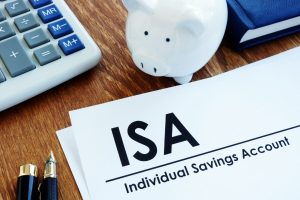Only about half of Americans feel “on track” to retire with the lifestyle they want, with nearly 30% planning to delay retirement, mostly due to market volatility and inflation concerns, according to a new report by money manager BlackRock.
In total, about 56% felt on track, the survey found. That marked an 11% drop in confidence compared with 2022, with the top key stressors cited as market volatility (93%), inflation (86%) and worries about outliving savings (71%).
Those who felt “off track” doubled to 24% from 2021, BlackRock said.
“We saw a decline in confidence across all generations. Last year was a really hard year. The decline in confidence reflect really challenged markets. It doesn’t quite feel good. Balances are about two years behind where they might be otherwise,” said Anne Ackerley, head of retirement at BlackRock.
Earlier this year, BlackRock Chief Executive Larry Fink talked about the “silent crisis” of retirement facing the global economy as increased longevity makes issues such as higher housing and healthcare costs for retirees more daunting.
Read: BlackRock CEO Larry Fink sees retirement as ‘silent crisis’ facing global economy
Economic concerns are not only impacting retirement confidence, but also stirring up negative emotions. For example, 53% of workplace savers were worried about a recession, 45% report they are feeling frustrated and 31% feel afraid.
While workers are still contributing to retirement plans at similar rates from 2022, nearly 30% are planning to delay retirement, driven mostly by market volatility concerns, and 62% report that inflation and volatility-related hardships have set them back with saving for retirement – compared with 42% from 2022.
“While the drop in confidence we’re seeing hasn’t translated to a decrease in saving rate yet, this moment matters,” Ackerley said. “There’s an opportunity to shore up retirement confidence and help workers navigate an uncertain environment ahead.”
Currently, only 21% of workers are very confident they will have enough money to last through retirement.
Among average workplace retirement accounts, amounts saved vary greatly. The youngest cohort – those age 21 to 30 – have saved an average of $110,421, while the oldest group – those 61 and older – had saved $347,544.
Ackerley cited William Sharpe, Noble Prize-winning economist, when she referred to “the nastiest, hardest problem in finance is longevity…running out of money in retirement.”
“Living to 80 is very different than living to 100. Everyone has to figure it out for themselves,” Ackerley said. “It’s very difficult.”
She said people over 50 years old should make catch-up contributions to help shore up their savings. Meanwhile, baby boomers are considering delaying retirement, which Ackerley called a “rational strategy.”
“The longer people can work, the longer they are saving, the longer they are delaying Social Security and the higher your monthly benefit will be, and they’re not spending,” Ackerley said.
Most Gen Z respondents (71%) said they want help managing their 401(k), and this group seeks advice from employers more than any other generation, the report found. Gen Z also had the biggest drop in confidence, Ackerley said.
“American workers – particularly, Gen Z, are asking for help to plan for their future. It’s our responsibility as an industry to provide them the solutions and tools they need to build more resilient retirement plans,” Ackerley said. “We don’t want them to get discouraged and lose faith.”
A majority of Gen Z respondents said they would consider selling in a market downturn, which Ackerley called worrisome.
“People should not be trying to time the market. Volatility will continue. Stay in, keep contributing. Markets are scary but ride it out,” Ackerley said.
According to the findings, the top three things workplace savers want to know are: what their nest egg will be, how much they can spend each year in retirement, and how long their savings will last.
A total of 71% said they would save more now if their plan had an option to provide guaranteed income in retirement – and nearly 90% of workplace savers say having access to guaranteed income would positively impact their well-being.
A bright spot in the report was that 87% of savers say that they happier because they are saving for retirement. A total of 80% of workplace savers are at least somewhat optimistic about their overall well-being over the next few years.
This post was originally published on Market Watch






